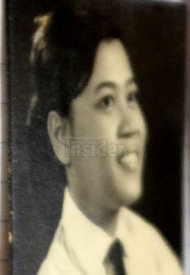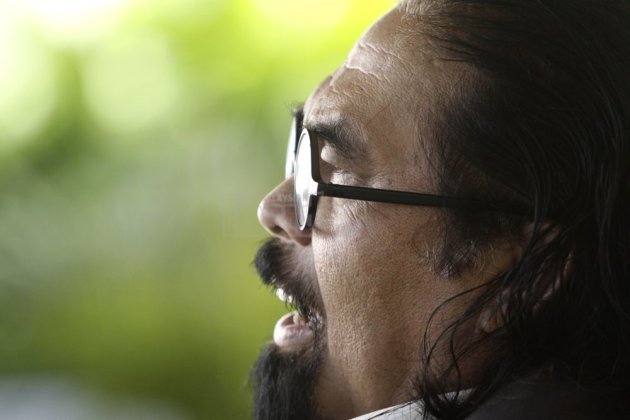Family of Malaysian “slave” Siti Aishah reveals her story
A Malaysian family has come forward to claim that a woman allegedly held as a slave for 30 years is a relative who disappeared virtually without trace after joining a Maoist sect in London.
Retired teacher Kamar Mautum, said she believed her 69-year-old sister, Siti Aishah, was the Malaysian woman who had allegedly been held captive by the leaders of a 1970s Communist "collective" for 30 years.
She said her disappearance had caused extreme heartache for her family.
Kamar said their mother’s dying wish had been to know what had happened to her daughter, who never returned, The Daily Telegraph reported.
“I have felt so choked without her for years and years. She was so talented, she was the apple of my mother’s eye. My mother asked for her on her death bed.
“When my mother died she (Aishah) did not want to talk to us and I could not do very much,” she told the British newspaper.
 Aishah (pic, left) had studied at one of Malaysia’s most elite schools, eventually winning a Commonwealth scholarship to study surveying in London.
Aishah (pic, left) had studied at one of Malaysia’s most elite schools, eventually winning a Commonwealth scholarship to study surveying in London.
She moved to Britain in 1968 with her fiance and dreamed of balancing an exciting career with a family, but was soon involved in extremist politics, eventually giving up everything to follow a Maoist doctrine.
She fell under the spell of Indian national Aravindan Balakrishnan and his Tanzanian partner Chanda, who were last week arrested on suspicion of holding three women against their will for more than three decades in south London.
Former student activist Hishamuddin Rais (pic) told The Malaysian Insider today that the 69-year-old Malaysian woman held as a slave in a London "collective" for some 30 years could be Siti Aishah Abdul Wahab, who went missing years ago.
 She was one of three women freed on October 25 in London after one of them secretly contacted a charity. The other two are a 57-year-old Irish woman and a 30-year-old Briton.
She was one of three women freed on October 25 in London after one of them secretly contacted a charity. The other two are a 57-year-old Irish woman and a 30-year-old Briton.
Hishamuddin, who went into self-exile in London in the 1970s, said Siti Aishah was active with Malaysian students in a leftist group that called itself "New Malayan Youth" in the British capital city at that time.
"Her brother sought me in 1991 to get assistance to find Aishah, who was said to be missing, as both of us come from the same district," Hishamuddin told The Malaysian Insider early today.
But Hishamuddin said she could not be found.
Kamar told The Daily Telegraph that her father, who was a school inspector and landowner, had given them strong Muslim values but Aishah had turned her back on her upbringing.
“This has been a dark age for her and for all of us. I will do anything to bring her home. I want to see her before either of us die,” she said.
When Aishah and her fiance, Omar Munir, arrived in London together it was a time of increasing social unrest with growing protests about the war in Vietnam.
Both were soon attracted to an organisation called the Malaysian and Singaporean Students Forum (MASS), which had a reputation as one of the more extremist Maoist groups operating in London.
Under the leadership of Aravindan and his partner Chanda Pattni, a Tanzanian of Indian descent, the collective was at the forefront of many student protests, despite boasting only a small membership.
Among the group’s many supporters were Malaysians who had fled a crackdown on radicals in their country and were backing the Maoist uprising from their London base.
Kamar said her sister was so in awe of the leader that she eventually split with her fiance, throwing her engagement ring into the River Thames, in a row over her loyalty to "Chairman Ara", or "Comrade Bala" as he was known to his followers.
According to Aishah’s family, the Malaysian government became aware of her political activities in London and warned her in the 1970s that it would make it very difficult for her to return home.
A fellow Malaysian, who asked not to be named said: “Aishah joined the group after me. She was an ethnic Malay with privileges in Malaysia, so it was a big step for her. She had a big sense of social justice. She was very determined, loyal.”
At one point there were thought to be up to 45 members and 200 supporters, but the group’s popularity waned as Balakrishnan’s ideology became more and more extreme.
The former member said this coincided with the leader becoming more manipulative and controlling and he soon began expelling anyone he regarded as a threat.
He later aligned his group with the Maoist Communist Party of England (Marxist-Leninist), which supported China’s Cultural Revolution and regarded only China and Albania as true Communist countries.
Aishah was one of just a small band of loyalists who remained with Aravindan and Chanda.
The former member said: “What happened is that over the 25 to 30 years, all of the things that were supposed to happen, didn’t happen.
“The world did not have a global revolution. His vision collapsed but he still tried to keep a grip on a small number of people.
“Aishah had cut herself off from everybody, her relationship, her family and lived in the collective. She remained with them, was financially dependent on them, had no friends as she became more and more reliant on them.”
He went on: “If your self-confidence is being chipped away all the time, self-esteem chipped away, you feel intellectually inferior... and you are dependent on group living, you are as good as being in prison.” - November 26, 2013.


No comments:
Post a Comment